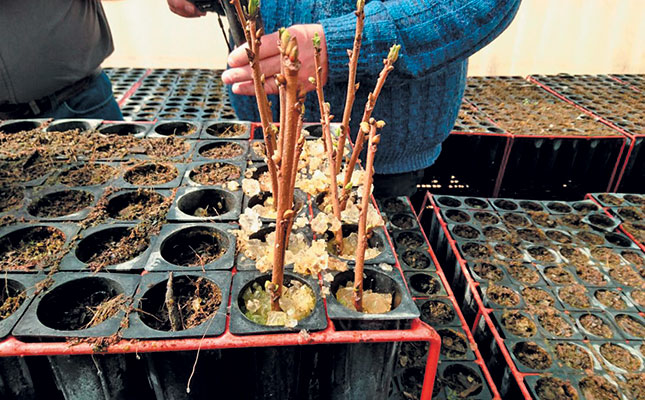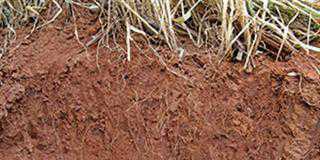
Photo: Courtesy of Southern Dot Trading
Only 1% of the water on Earth is fresh water in its liquid state, and occurs as groundwater and surface water in rivers and lakes.
With the supply of groundwater steadily decreasing, it is crucial to use it wisely, particularly in light of the changing environment and growing human population. Unfortunately, vast amounts are still being lost or polluted worldwide.
In crop farming, whether dryland or under irrigation, water is a fundamental input, especially in semi-arid or arid countries where much of the land surface is covered with sand.
Only water can make crops grow, but the cost of providing water suitable for irrigation is continually increasing, and rainfall is becoming increasingly unpredictable.
In sandy soil, more than 90% of the applied water, whether irrigation or rainfall, can be wasted. Sand has a high infiltration rate and low water-holding capacity.
Consequently, water drains rapidly into and through it until reaching a lower impermeable layer of bedrock. The top sandy layer dries out quickly, forcing the irrigation farmer to irrigate repeatedly.
Less water, higher yield
One solution to this problem might be an innovation called Polyter, which was recently launched in South Africa. According to local distributor, André Pretorius, the director of marketing and sales at Southern Dot Trading, Polyter was developed and patented by the French agronomist, Philippe Ouaki di Giorno.
“It’s a natural water-retaining polymer that gives a crop the water and nutrients it needs to thrive under a wide range of conditions and boosts yield remarkably,” says Pretorius.
Polyter is a granular blend of cellulose and potassium polyacrylate enriched with organic nitrogen, phosphorous and potassium, and the trace elements boron, copper, iron, manganese, molybdenum and zinc.
“Each granule acts as a mini reservoir. In contact with moisture, it rapidly absorbs a vast amount of water, swelling to up to 500 times its dry volume and then slowly releasing it directly to the roots as needed, along with the nutrients,” Pretorius says.
The roots react positively, forming absorption nodules in permanent contact with the Polyter granules.
Product trials
After being widely tested, the product is now being used with great success in arid countries in Europe, Latin America and North Africa. It is now also available in Southern Africa, where agriculture experiences periodic drought and water shortages, climate change and limited rainfall.
In other parts of the world, including France, Portugal, Spain, Morocco, UAE, Egypt, Vietnam, Burkina Faso, Mexico, Chile and Argentina, international trials have indicated a reduction in irrigation by 50% to 80%, and an increase in crop yield of up to 30% without the need for any additional fertiliser.
In certain trials, it was shown that the moisture and nutrients provided by the product boosted root development by more than 300%, improving plant growth and development, and increasing crop yield and quality under even the most arid of climatic conditions.
“The plant’s roots, naturally attracted by the moisture, penetrate the swollen Polyter particles to form synthesis nodules. These become an integral part of the root system, absorbing and releasing water and nutrients as needed to stimulate the plant’s development and growth.
The nodules protect 27the plant from dehydration stress and nutrient shortages, improving its resistance to disease and bacterial attack,” explains Pretorius.
After 18 months of negotiations, Southern Dot Trading has secured the sole rights as authorised representative of Polyter in Southern Africa. It is currently running trials in South Africa, including at North-West University, Vinpro (Vivitec), K2 Agri and Sandvet Pecans near Bultfontein.
Local trials are being conducted on citrus, vineyards, tomato, pomegranate, pecan nut, pineapple and avocado, amongst others, says Pretorius.
“The product must be applied during planting, into the planting row or planting pit. The rate of application will vary based on the type of crop,” says Pretorius.
Over-application will not affect plants negatively, but will be a waste of money.
The lifespan of the product is three to five years. Subsequent applications must again be applied to the plant root zone or during replanting.
According to Pretorius, the cost of the product will be recuperated over the product’s lifespan by means of improved yield.
Phone André Pretorius on 082 574 9289, or email him at [email protected].










